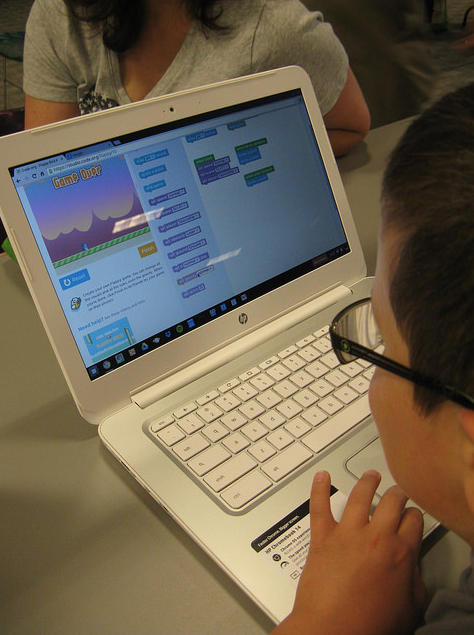
Online dangers lurk in every alley way of the web. Just when you think you’ve sorted all your parental controls and backed up all your data, you find a loophole. Avoiding these can be very difficult, thats why its imperative to cover all the bases when it comes to educating your children on the dangers of the web. While the computer should be a fun and educational world for your little ones, it’s very easy for them to find ways around your walls you’ve built to try and keep them protected. By incorporating a little old school practices with some new techniques, you should have them safely searching in no time.
Practice what you preach. Have an open talk with you family about what you do online and why. Sharing what you do online can open the door for your children to feel more comfortable about sharing what they do online. Be a leader, before you educate your little ones, make sure you are well versed in all privacy settings and available networks in your household. Kids are information sponges and will naturally copy behaviors you have while searching the web.
Set up your computer in a central station in the house. This will allow you to keep an eye on your child's activity without them feeling like they have to be sneaky. Additionally, screen time is a major factor to what children can and can’t do on the web. By minimizing and monitoring their time they will have less of a chance to get in to trouble.
Consider making a list or contract of all the places your little one is allowed to visit while online. Educate them on how to make strong passwords, this will come in handy even in to their teenage years. Let them know that if their account gets hacked, all photos -- even the ones you didn’t post -- could be seen by strangers and theres a chance you might get locked out o
Lead by example and always make sure your little ones know the dangers of online predators. Educate them on the dangers of sexual predators, the crime rates of online impersonation and the danger lurking in dark alleys of the web. According to Houston defense lawyer, David A. Breston, "online ‘impersonation can include anything from fake profiles, using someone else's name without permission and posting messages through any social platform on their behalf." This is a good lesson in really grasping the severity of any online predator.
Even with 100% full parental controls in your back pocket, educating and ensuring your child knows there are people out there who have fake identities online can guarantee that they take measured steps to know who they're talking to. This information isn’t intended to scare them -- but should be l filters and control, you can still never be sure what your little ones get in to.
If you are allowing your little one to use apps like snapchat, Instagram and Facebook, they offer several parental security controls that can be found on their website security page.
Useful tips and resources I find helpful:
This post comes from the TODAY Parenting Team community, where all members are welcome to post and discuss parenting solutions. Learn more and join us! Because we're all in this together.
